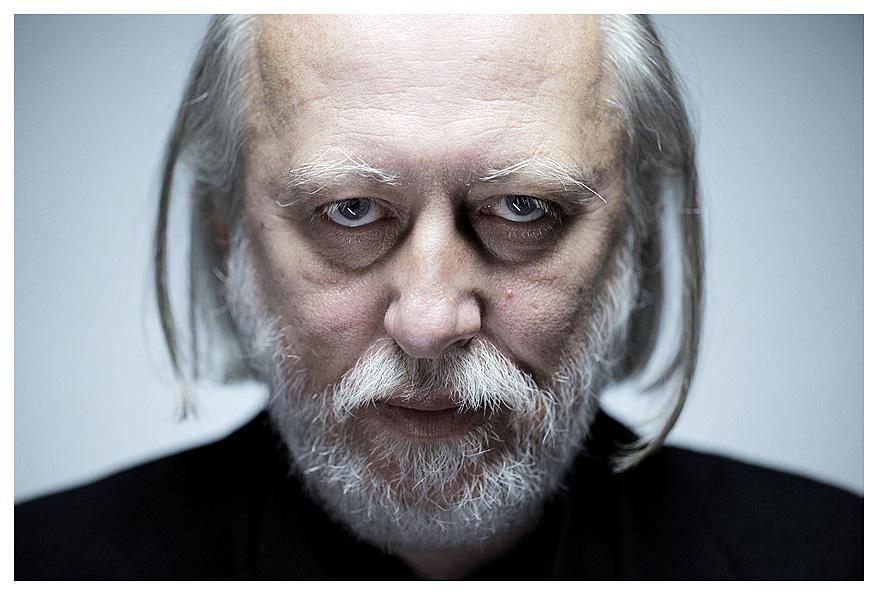
The author is less known in Slovenia, most likely because none of his books are translated into the Slovenian language.
The melancholy and saturnine Krasznahorkai's poetics pulls the reader with improbable effortness into the deepest labyrinths of the human existence, wrote Jutka Rudaš, a member of the jury. The other members of the jury, with Andrej Blatnik as the chairman, were Lidija Dimkovska, Ludwig Hartinger, Vesna Kondrič Horvat, Tone Peršak, Veronika Simoniti, Namita Subiotto, Tomaž Šalamun, Špela Sevšek Šramel, Aleš Šteger and Jana Unuk.
The dark imagery of lostness
Krasznahorkai is the poet of marginalized, lonely people. His poetics is based on the lostness of an individual within society, and time. Through his precise composition he is weaving his characters into the endlessly punishing melancholic world of the existence. The sombre atmosphere demands suitable rhetoric for the depiction of the state of mind within the articulation of his works – it is the rhetoric of omissions, and silence.
Krasznahorkai's poetic world depicts individuals, characters from the edge of the society, and the very edge of survival. Thus he creates the atmosphere of hopeless nonsense, and shows the form of the existence which is becoming a reality for more and more people.
Satan's tango, Melancholy of resistance, and War and war are considered his basic works. They are masterfully depicting the choreography of traps, the anatomy of destruction, the apocalyptic vision of the world, wrote Rudaš.
His works allude to East European model of society, and society changes, which is very actual as spread globally. Political battles, lies, demagogy, masked promises, manipulating with millions of peoples and interfere with their lives, penetrate into human depths where true life catastrophes are happening.
Krasznahorkai (1954) has been working as an independent artist since 1982. In Hungary he has already won all the most important literary awards, including the prestigious Kossuth Award in 2004. He is known not only to domestic public and critics, but all over the world: from the USA to Germany and Japan. His books have been translated into a number of world languages.
A prominent film tandem
Rudaš also explained that the author is better known to the Slovenian public as a screenwriter, as he has been cooperating with the film director Bela Tarr since 1985. They have also cooperated at the film based on his novel Satan's tango, and their last joint project, The Horse of Turin, won the Silver Bear award in 2011 at the Berlin Festival, together with the award of film critics. The film was shown at Liffe.
Vilenica remains unique
Patron of the Vilenica Award of 10,000 Euros is Riko Company, and the winner will receive the prize at the end of the festival which is taking place between September 2 and 7.
The President of the Slovene Writers' Association Veno Taufer mentioned at that occasion that Vilenica after almost 30 years remains the only festival presenting awards to central European writers.

































































